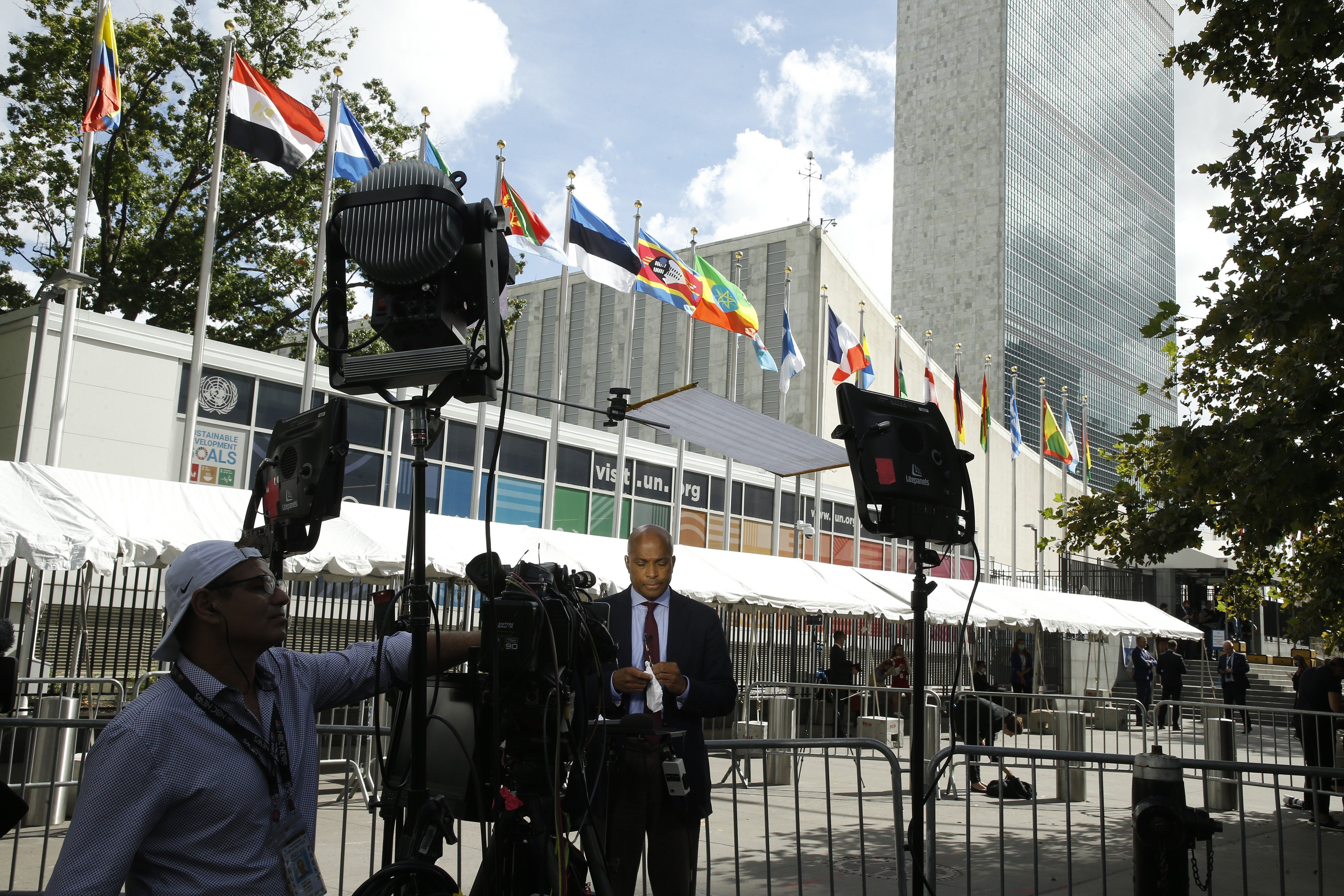Television media broadcast commentaries as delegates arrive to the United Nations 76th General Assembly amid protests on September 21, 2021 in New York City, USA.
John Lamparski/NurPhoto via Reuters
The comings and goings over on East 42nd street in Manhattan can be hard to pin down, but GZERO Daily has you covered all week.
Our intrepid Senior Writer Gabrielle Debinski is on the ground with our colleagues from GZERO World for the latest updates. Also, if you missed our rundown of the major items on the agenda on Friday, catch up here.
Please note, leaders are listed in the order in which they are expected to speak, but the schedule sometimes runs ragged. You can find a complete schedule here.
Major Speakers on Tuesday
- Brazilian President Luiz Inácio Lula da Silva: By tradition, the Brazilian president opens every General Assembly debate. Lula has complained about too much focus on Ukraine at the expense of other global issues, watch for his rhetoric here.
- U.S. President Joe Biden: The only leader from a permanent member of the Security Council who is attending the summit in person, expect lots on Ukraine and appeals for development aid and climate action..
- Colombian President Gustavo Petro: The left-wing leader called for an end to the war on drugs in his first UNGA speech last year — and now cocaine exports are booming.
- Turkish President Recep Tayyip Erdogan: Often the belle of the geopolitical ball the past two years, Turkey has played a crucial role in the Black Sea grain deal and is the only NATO member with good ties to Moscow. This one is worth your time.
- Ukrainian President Volodymyr Zelensky: With his counteroffensive making slow progress and whispers of “Ukraine fatigue” spreading across Europe and the US, the actor-turned-president is looking to make a command performance to shore up support.
Major Conferences
- Day 2 of the High-Level Political Forum on Sustainable Development Goals
